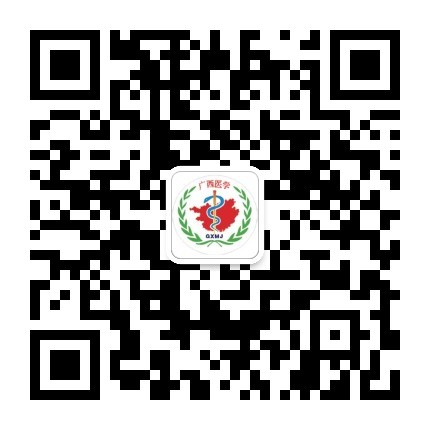目的 探讨18F⁃氟代脱氧葡萄糖(18F⁃FDG)PET/CT代谢参数联合临床病理特征对晚期结直肠癌患者鼠类肉瘤病毒癌基因(KRAS)基因突变的评估价值。方法 回顾性分析64例晚期结直肠癌患者的临床资料。所有患者在治疗前均接受18F⁃FDG PET/CT检查。分析最大标准化摄取值(SUVmax)、不同阈值下的代谢肿瘤体积(MTV)和病变总糖酵解(TLG)、临床病理特征与患者KRAS基因突变状态之间的关系。通过多因素Logistic回归模型分析与患者KRAS基因突变相关的因素。采用受试者工作特征曲线分析18F⁃FDG PET/CT代谢参数、临床病理特征及二者联合评估患者KRAS基因突变的效能。基于18F⁃FDG PET/CT代谢参数和临床病理特征构建列线图模型。结果 单因素和多因素Logistic回归分析结果显示,SUVmax≥19.55、MTV50%≥7.95、肿瘤组织中/高分化与患者KRAS基因突变有关。SUVmax、MTV50%和肿瘤组织分化程度评估患者KRAS基因突变的曲线下面积(AUC)分别为0.653、0.625和0.621,三者联合评估的AUC为0.800,均高于单个指标的AUC(P<0.05)。基于SUVmax、MTV50%和肿瘤组织分化程度构建的列线图模型的一致性指数为0.800,校准曲线与参考线基本拟合。结论 18F⁃FDG PET/CT的代谢参数SUVmax、MTV50%与晚期结直肠癌患者KRAS基因突变密切相关,联合肿瘤组织分化程度所构建的列线图模型对患者KRAS基因突变具有较高的评估价值。
广西医学 页码:376-381
作者机构:庞丁华,在读硕士研究生,研究方向为18F⁃FDG PET/CT在结直肠癌中的应用价值。
基金信息:广西科技计划项目(桂科AB19110015);广西生物靶向诊治研究重点实验室开放课题(GXSWBX202203,GXSWBX202204,GXSWBX202205)
- 中文简介
- 英文简介
- 参考文献
Objective To investigate the evaluation value of 18F⁃fluorodeoxyglucose (18F⁃FDG) PET/CT metabolic parameters combined with clinicopathological features on Kirsten rat sarcoma viral oncogene homolog (KRAS) gene mutation in patients with advanced colorectal cancer. Methods The clinical data of 64 patients with advanced colorectal cancer were retrospectively analyzed.All patients underwent 18F⁃FDG PET/CT examination before treatment. The relations of maximal standard uptake value (SUVmax), metabolic tumor volume (MTV) and total lesion glycolysis (TLG) in different thresholds, clinicopathological features with KRAS gene mutation status of patients were analyzed. The multivariate Logistic regression model was used to analyze the factors related to KRAS gene mutation in patients. The receiver operating characteristic curve was employed to analyze 18F⁃FDG PET/CT metabolic parameters, clinicopathological features, and the two as above for alone and jointly evaluating the efficiency of patients' KRAS gene mutation. A nomogram model was established based on 18F⁃FDG PET/CT metabolic parameters and clinicopathological features. Results The results of univariate and multivariate Logistic regression analysis revealed that SUVmax≥19.55, MTV50%≥7.95, and tumor tissues with medium/high differentiation were related to patients' KRAS gene mutation. Areas under the curve (AUC) of SUVmax, MTV50%, and differentiated degree of tumor tissues for evaluating patients' KRAS gene mutation were 0.653, 0.625, and 0.621, respectively, and AUC of combined evaluation of the three was 0.800, which was higher than AUC of the single index (P<0.05). The consistency index of the nomogram model established based on SUVmax, MTV50%, and differentiated degree of tumor tissues was 0.800, and the calibration curve basically fitted the reference line. Conclusion Metabolic parameters SUVmax and MTV50% of 18F⁃FDG PET/CT are closely related to KRAS gene mutation in patients with advanced colorectal cancer.The nomogram model established by combining differentiated degree of tumor tissues exerts relatively high evaluation value on patients' KRAS gene mutation.
-
无




 注册
注册 忘记密码
忘记密码 忘记用户名
忘记用户名 专家账号密码找回
专家账号密码找回 下载
下载 收藏
收藏
